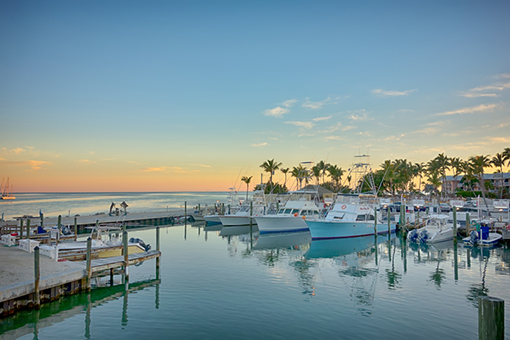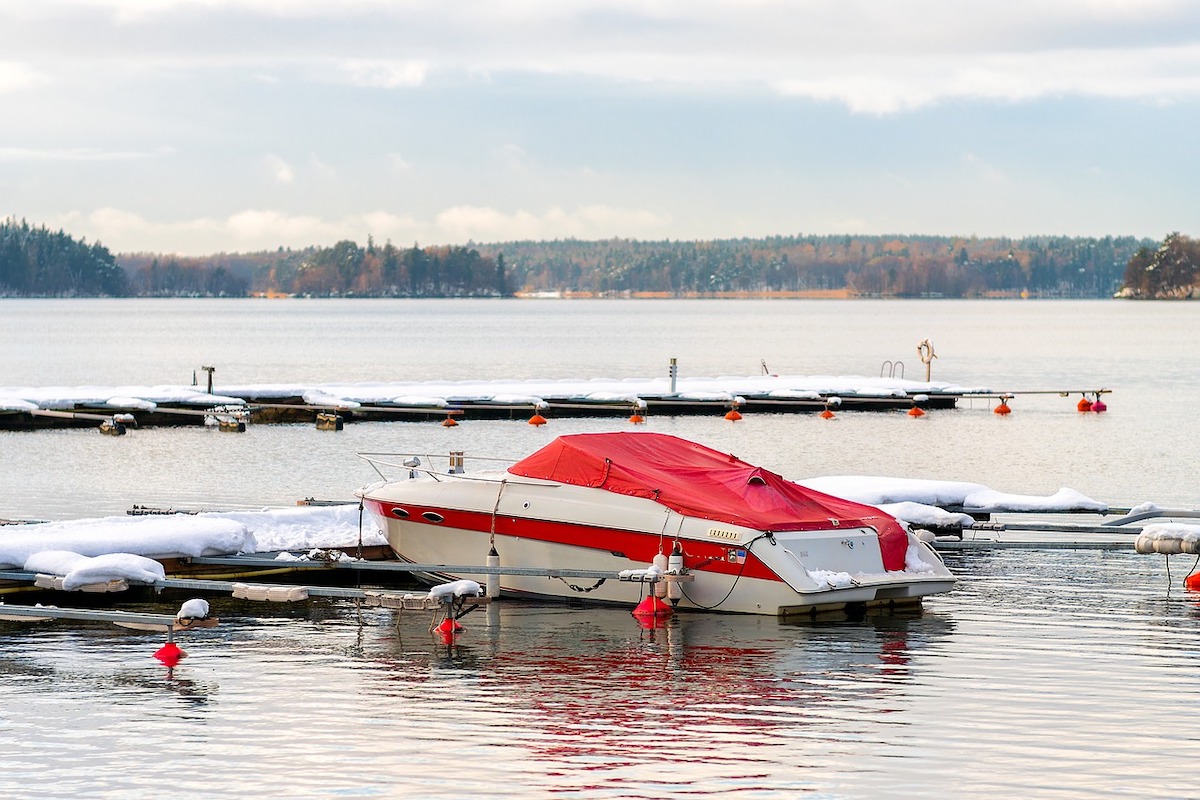Hypothermia can sneak up on you if you're boating or fishing in cold weather. If you experience a sudden wake or "unbalancing event," you could fall into icy waters and frigid temperatures.
The more you know about this medical emergency, the better equipped you will be to prevent and handle it. Today's article covers everything you need to know about hypothermia in water — including what water temperature causes hypothermia and what to do if you get stuck in it.
What is Hypothermia?
Hypothermia occurs when the body loses heat faster than it produces heat. It is caused by exposure to water or air, and the body's temperature will drop below 95°F.
Many people are under the impression that hypothermia only occurs in freezing water. However, that's not necessarily the case. Any environment that exposes you to cold conditions for a prolonged amount of time can put you at risk of hypothermia.
Boaters become hypothermic through:
- Immersion in cold water (see temperature chart below)
- Exposure to cold air and wind while wearing damp or wet clothing
- Prolonged exposure to cold water or air temperatures
Read Next: How to Stay Warm Onboard a Boat
What Happens During Hypothermic Shock
So, what happens during hypothermic shock? Well, rapid body heat loss quickly impairs dexterity and consciousness, and it can even result in death. Additionally, it's challenging to stay afloat when you fall into cold water — no matter how strong a swimmer you are. Therefore, many hypothermic victims are at risk of drowning.
Hypothermia is progressive, meaning the body passes through several stages before lapsing into an unconscious state. According to the United States Coast Guard, there are various phases of hypothermia:
- Mild Hypothermia (98-90°F) - The person feels cold, violently shivers, slurs their speech, lacks coordination, loses memory, appears pale, and has cold skin.
- Moderate Hypothermia (90-86°F) - The person loses muscle control, stops shivering, and appears drowsy, incoherent, confused, and exhausted.
- Severe Hypothermia (86-78°F) - The person collapses, is unconscious, and shows signs of respiratory distress and/or cardiac arrest. They experience severe muscle stiffness and have ice-cold skin.
What Water Temperature Causes Hypothermia?
You can experience hypothermia in a variety of water temperatures, as it depends on several factors:
- Body fat
- Body size
- Air temperature
- Water temperature
- Swimming speed (effort exerted)
Here's a general overview of what water temperature causes hypothermia, as well as the estimated survival times:
|
Hypothermia Chart |
||
|
If the Water |
Exhaustion or |
Expected Time |
| 32.5 |
Under 15 min. |
Under 15 - 45 min. |
|
32.5 - 40 |
15 - 30 min. |
30 - 90 min |
|
40 - 50 |
30 - 60 min. |
1 - 3 hours |
|
50 - 60 |
1 - 2 hours |
1 - 6 hours |
|
60 - 70 |
2 - 7 hours |
2 - 40 hours |
|
70 - 80 |
3 - 12 hours |
3 - Indefinite |
|
Over 80 |
Indefinite |
Indefinite |
Note that children and people with a lower body mass will experience hypothermia faster than adults or their heavier counterparts.
How to Fight Hypothermia in Water
When you are experiencing hypothermia in water or air, you need to conserve your heat. Limit your body movement and only swim if you can easily reach a boat or floating object nearby. Swimming lowers your body temperature, so even incredibly skilled swimmers drown in cold water.
If you can partially pull yourself out of the water, make sure to do so. The more your body is out of the water, the less heat you lose. And since 50% of our body heat exits through our heads, aim to keep yours out of the water.
Additionally, wearing a personal flotation device (PFD) in the water is crucial for survival. Not only do life jackets help you stay afloat with minimal effort, but they also allow you to assume the heat escape-lessening (H.E.L.P.) position. This is also known as the fetal position. This position keeps your armpits, chest, groin, and knees warm.
Additionally, if you are in the water with others, huddle together to keep warm.
How to Treat Hypothermia
Treating hypothermia involves gradually returning the body temperature to normal. Share a sleeping bag or blanket and/or put warm, damp cloths on your neck, chest, and groin. You could also drink warm broth or decaffeinated tea. However, avoid coffee and alcohol, as they can lower body heat.
Remove wet garments and keep your arms and legs out of the water. Avoid rapidly warming or massaging your arms and legs. Massages cause the circulatory system to bring cold blood from the surface to the body's core, which can lead to a drop in temperature.
If you're suffering from mild or medium hypothermia, you could progressively heat a warm bath. Cases of moderate or severe hypothermia should seek medical attention immediately.
Tips for Hypothermia in Water
Wear ample layers while boating in cold waters or conditions to lower your risk of hypothermia. Additionally, wear a hat and gloves to keep your head and hands warm.
Before boating in the cold, eat a healthy meal, as this sustains your energy. Additionally, watch the weather and water conditions throughout your journey. And if you or another passenger experiences hypothermia while boating, make sure to seek medical attention immediately.


